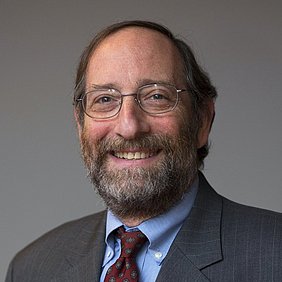Dear Friends,
For many traditions around the world, and certainly among Jews, Christians, and Muslims, light is a symbol with many layers of meaning relating to the divine, which are expressed in a variety of ways, including ritual, art, and architecture. Both Chanukah and Christmas occur around the time of the winter solstice in the northern hemisphere, so it is not surprising that light has become a central image in both holidays. At the darkest time of the year, many people celebrate the return of the sun as an expression of faith in the renewal of the natural world that it promises.
These are metaphorically dark times for many of us regardless of where we live. Wherever we look we see war, suffering, political upheaval, social discord, religious intolerance, and environmental devastation. A positive path forward is hard to discern.
As the conflict in the Middle East continues, in some places Jewish-Christian dialogue and trilateral Jewish-Christian-Muslim dialogue have become strained, if not impossible. It has led some to question whether the entire endeavor has been a waste of time.
I have had my moments of despair, and I am very worried about the future. And, while I am realistic about the challenges we face, I continue to believe in the power of dialogue.
The dialogue movement, historically speaking, is quite young. Some trace its origins to the 1893 World’s Parliament of the Religions in Chicago, but it was the Shoah that served as the catalyst for contemporary Jewish-Christian dialogue and in many ways for interreligious relations writ large. In the face of the centuries in which faith and belief were viewed as a zero-sum game and interreligious “relations” consisted primarily of polemic and violence, we can point to real and significant achievements from the highest institutional level down to the very local.
Today, many international religious and political leaders promote interreligious harmony and mutual respect. Academic scholarship and theological reflections on interreligious relations abound. Cooperation between churches, synagogues, mosques, and others - joint learning, pulpit exchanges, communal service – can be found in many communities. And there are plenty of examples of dialogue persisting and even thriving in the face of the current reality. In some cases, being forced to have difficult conversations has led to the deepening of understanding and strengthening of relationships. The activities of the ICCJ and its member organizations are an important part of this phenomenon.
The fact that religious polemic and violence persist is not an indication that our efforts are failing. Human beings are by nature xenophobic. Old habits die hard. As practitioners of dialogue know, building trust is essential. But building trust takes time, especially when it challenges long held beliefs that many continue to see as true and sacred (and that are often exploited by religious and political leaders).
Though it can certainly be disheartening, we should not be surprised when events overtake us and cracks and strains threaten the progress we thought we had made. It was seismic global events that catalyzed the dialogue movement in the first place and, to state of the obvious, relationships are not static; they require constant care and attention as we and the world around us change. They also require the courage to be vulnerable – and to recognize the other’s vulnerability. And finally, they require time.
A popular children's Chanukah song begins with these words: "We have come to dispel the darkness, in our hands are light and flame. Each individual is a small light, but together we are shining beacon." That is how I see the work to which we are committed: each of us in our own way bringing the light of learning, understanding, and "holy envy" to a world that desperately needs it.
While global interreligious harmony is still a distant dream, what has been accomplished so far demonstrates that the change we seek is possible.
With every good wish for 2025!
David Fox Sandmel
ICCJ President

